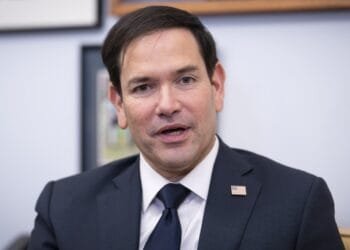Government and SNP condemn Speaker Lindsay Hoyle for his handling of the Gaza ceasefire debate.
The UK’s House of Commons has descended into chaos as the government and the Scottish National Party (SNP) condemned Speaker Lindsay Hoyle for his handling of a key vote on support for a ceasefire in Gaza.
SNP members of parliament (MPs) and some Conservatives walked out of the chamber on Wednesday in an apparent protest at the speaker’s actions as the debate reached its conclusion.
Commons Leader Penny Mordaunt claimed Hoyle had “hijacked” the debate and “undermined the confidence” of the House in its longstanding rules by allowing MPs to vote on a Labour amendment to an SNP motion calling for an “immediate ceasefire” in Gaza and Israel.
The initial SNP motion also called for an end to the “collective punishment of the Palestinian people” by Israel. But Labour’s motion included language that caveated calls for a ceasefire by noting that “Israel cannot be expected to cease fighting if Hamas continues with violence”.
It had been expected that Hoyle would prioritise a government amendment to the SNP motion, which sought an “immediate humanitarian pause” – and not a ceasefire – to Israel’s war on Gaza.
However, by instead prioritising the opposition Labour Party’s rival motion, Hoyle was accused of breaking precedent. More importantly, the decision allowed Labour to avoid a potentially damaging split over the SNP motion, with some Labour MPs willing to support it, but party leadership telling its parliamentarians not to vote for it without the Labour amendment.
The number of Labour MPs willing to vote against the directive from party leader Keir Starmer would likely have led to the biggest revolt against his leadership since he became leader of the opposition in 2020.
Instead, by bringing the Labour motion forward, Hoyle gave potential rebels the opportunity to support their party leadership instead of the SNP, while still backing a ceasefire – even if the motion’s language was less blunt than the Scottish party’s.
SNP MPs were understood to have headed to the voting lobby after the walkout from the chamber.
Ian Blackford, an SNP MP, told media that the day’s events in parliament had distracted from events in Gaza and made the eventual vote less impactful.
“[The Labour Party] came up with this proposition that allowed them to have a vote, and the purpose of that – particularly when the government party [the Conservatives] wouldn’t participate in it – meant that our meaningful vote … wasn’t taken,” Blackford said. “I regret that tonight we’re having to discuss this, rather than discuss the need of protecting the people in Gaza that need that ceasefire to take place.”
One Conservative MP, William Wragg, has brought forward a parliamentary motion expressing no confidence in the speaker, a sign of the anger of some parliamentarians at what is perceived to be a deviation from the speaker’s traditionally neutral role.
Speaker denies accusations
Hoyle returned to the House of Commons later in the evening and apologised.
“I have tried to do what I thought was the right thing for all sides of this House,” Hoyle said. “It is regrettable, and I apologise, that the decision didn’t end up in the place that I wished.”
“Keir Starmer [and] his Labour Party have kind of gotten out of a sticky mess, but it leaves parliament looking extremely compromised. What was a serious debate about this crucial issue about civilian life in Gaza has ended in this procedural nightmare.”











